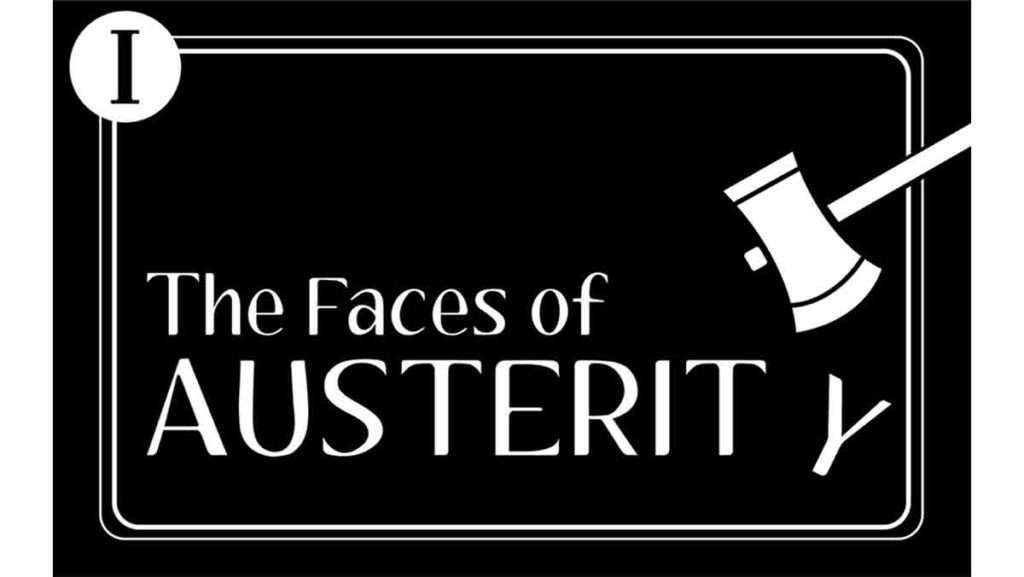
Political Rhetoric Expert Feels Gaslit
Alex Moon, assistant professor in the Department of Politics, is 56 and has a Ph.D. from Cornell University. He has taught courses about U.S. politics, political theory, constitutional law and the Supreme Court for 21 years at Ithaca College. He often participates on panels and gets interviewed on issues related to elections, campaign finance and why students do not vote.
In addition to having served on the Faculty Council and diversity task force, Moon is active in several professional associations, regularly presenting papers, organizing conferences and governing as an elected officer of the Association for Political Theory. He is currently working on a book about the epistemic duties of citizens — what they need to know to be viable political actors and respond to others who spread falsehoods, are unreasonably credulous or choose to remain ignorant.
Moon loves teaching, reading and writing, and being a politics professor at the college is his dream job. He fears he’ll have to leave academia, causing him to feel “disoriented, depressed and anxious.” He has a 12-year-old daughter and is “super worried about losing [his] house and disrupting her life, as well as her feeling like her world is precarious.” Moving away from upstate New York is “just unthinkable,” as he’d lose child custody along with their daily routines.
Over 30 years ago, he worked in management and analytics for the New York City government, which gave him expertise in budgets and insights into the college’s current plans.
“Who would want to send their kid to a downsized college when they can spend the same amount of money on another one that’s not?” he asked. “And the fact that enrollment rates have been declining more rapidly here than elsewhere suggests that the problem lies with their management. I wish they would just stop gaslighting us about the whole process, pretending it’s grassroots and community-led and instrumentalizing cherished progressive values for a narrow, discredited marketplace strategy. We’re academics who pay attention to language and the ways it’s used to manipulate, but they’re treating us like consumers or gullible voters.”

Community Ties at Risk of Being Lost
Sergio Pedro, 56, assistant professor in the Department of Modern Languages and Literatures, is Portuguese by origin and is a specialist in 17th century Spanish literature. He has taught in the Department of Modern Languages and Literatures for 15 years and also teaches language and linguistics. The elimination of Pedro signals the potential end of the linguistics minor at Ithaca College. “Language and literature, language acquisition, linguistics — this is my world. I trained my whole life to do this, and I love teaching,” he said. Beyond that, the college is, he said, “my livelihood, my retirement.” Although he is unlikely to find another job in his field, leaving the area is not a viable option because his life partner is a tenured professor at Cornell University. “My life is here.”
Often, he bridges the campus–community divide as faculty adviser to the student group Intercambios. The group engages in conversational practice with Spanish-speaking members of the Ithaca community and teaches English as a second language to area farmworkers. Pedro is also faculty adviser for the Ithaca College group Big Brothers Big Sisters, which provides mentoring for at-risk children, and he chairs the advisory board of its local chapter. When he is not engaged in those pursuits, he plays guitar and bass in local rock bands.
“I teach because I love that moment when you get your students to understand that the culture and world they live in is just one among others, or when they read past what’s on the surface of a text and engage in critical thinking.” He said he feels strongly that the best thing about the college is its faculty and that the college would have been better served had decisions been left to them. He stressed that faculty would not focus on “corporate thinking” that prioritizes “putting millions into marketing to high schoolers and making the campus look good. To watch this blow be dealt to the college is heartbreaking.”
This weekly series aims to put human faces on the faculty members who have been notified of their termination as a result of the Academic Program Prioritization. Faculty members interested in sharing their stories can reach out to Harriet Malinowitz, lecturer in the Department of Writing, at [email protected].







